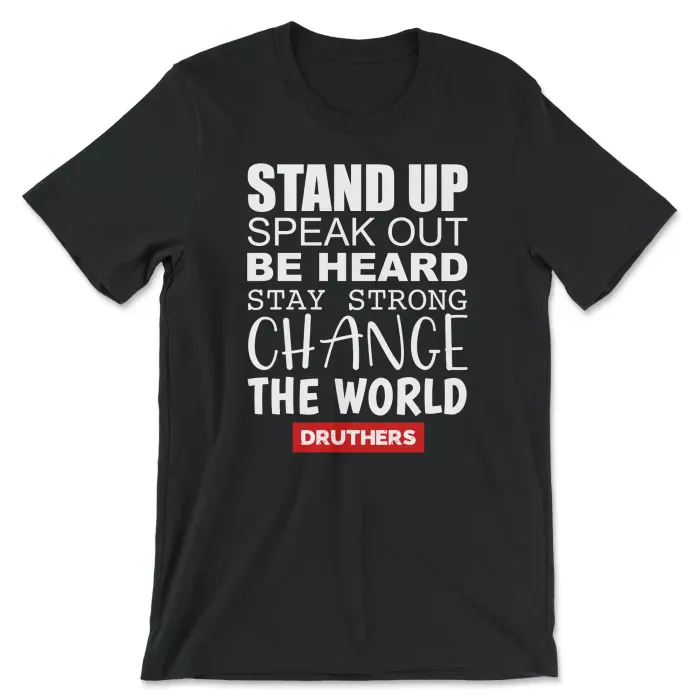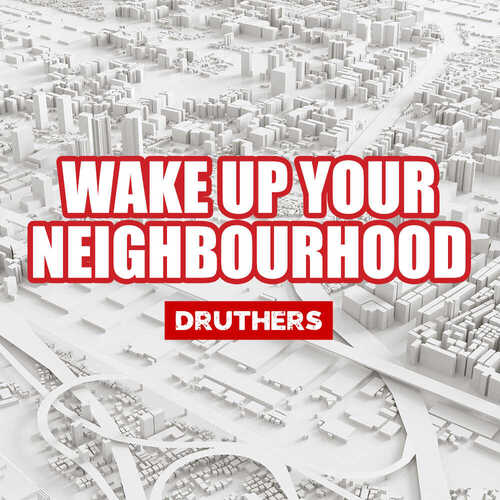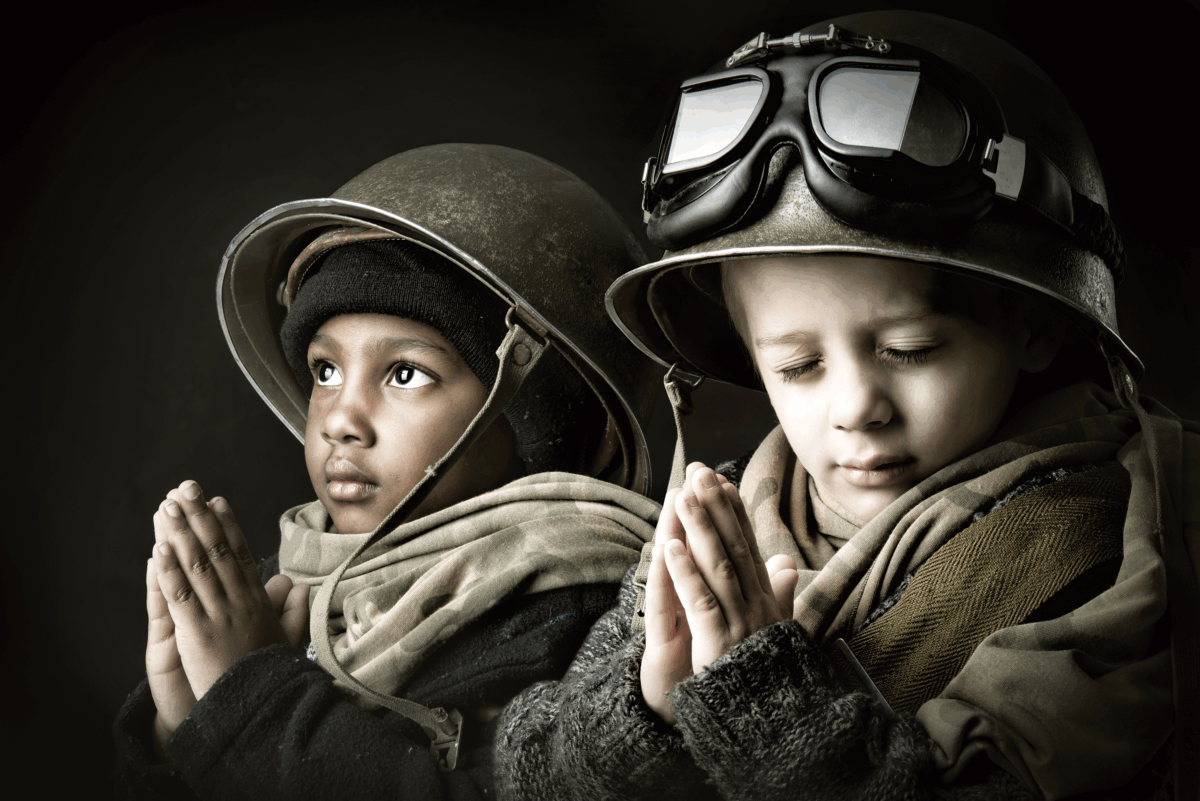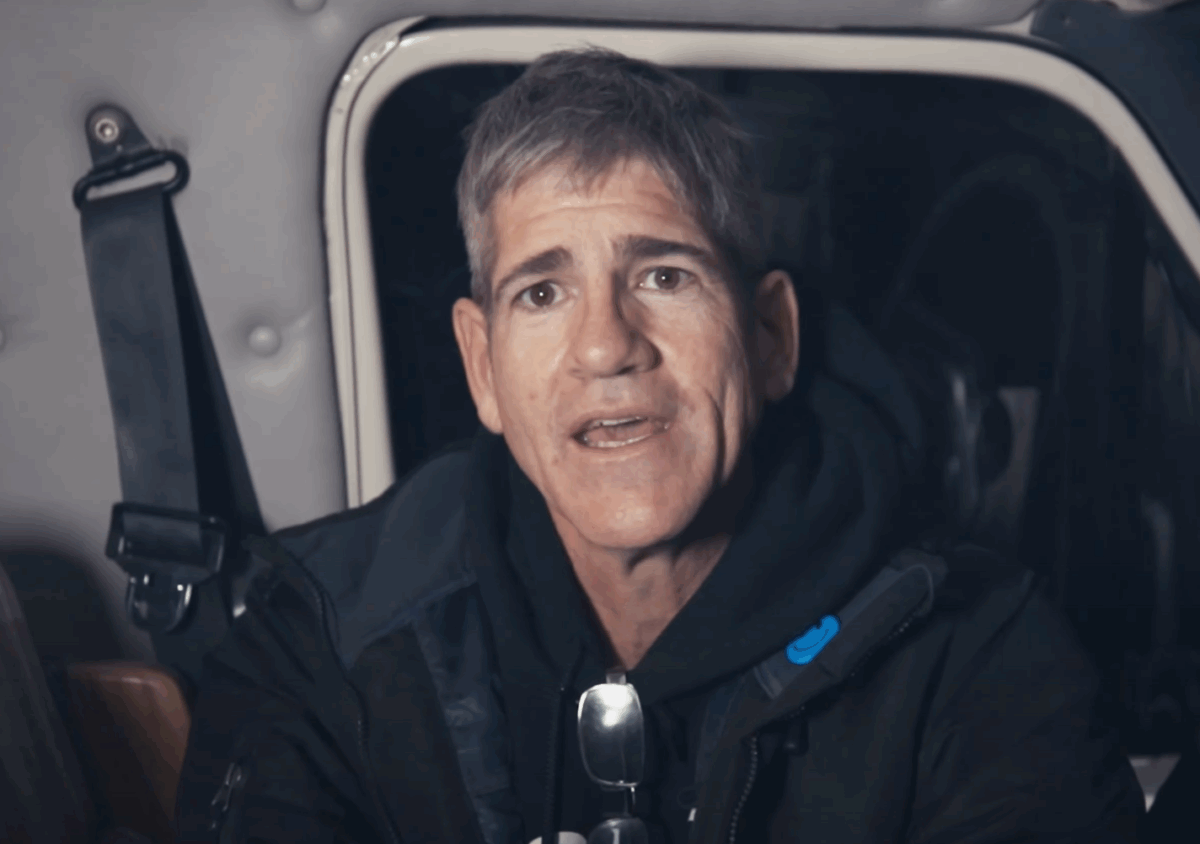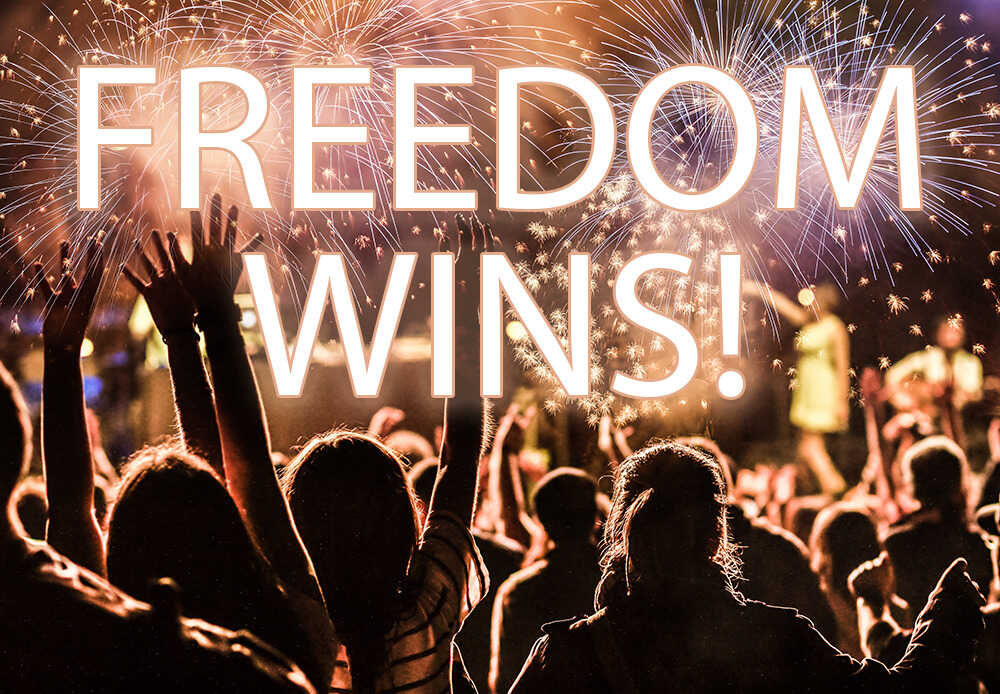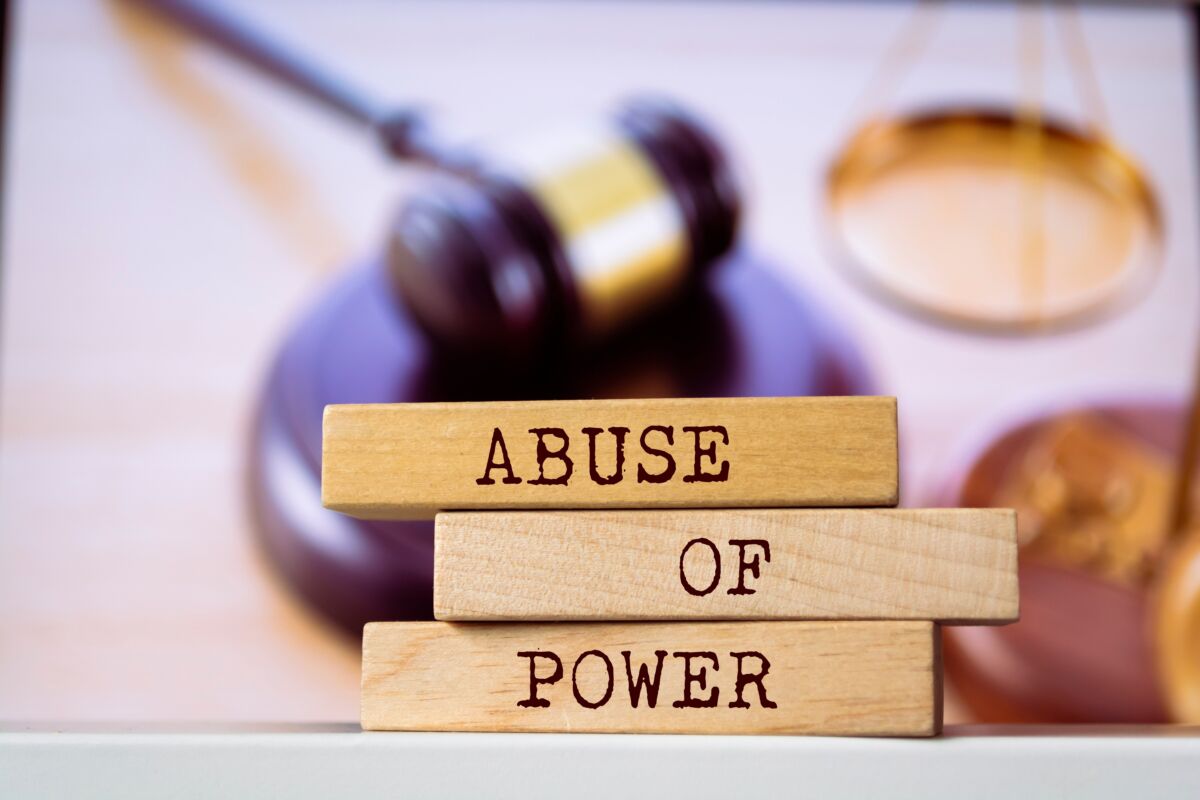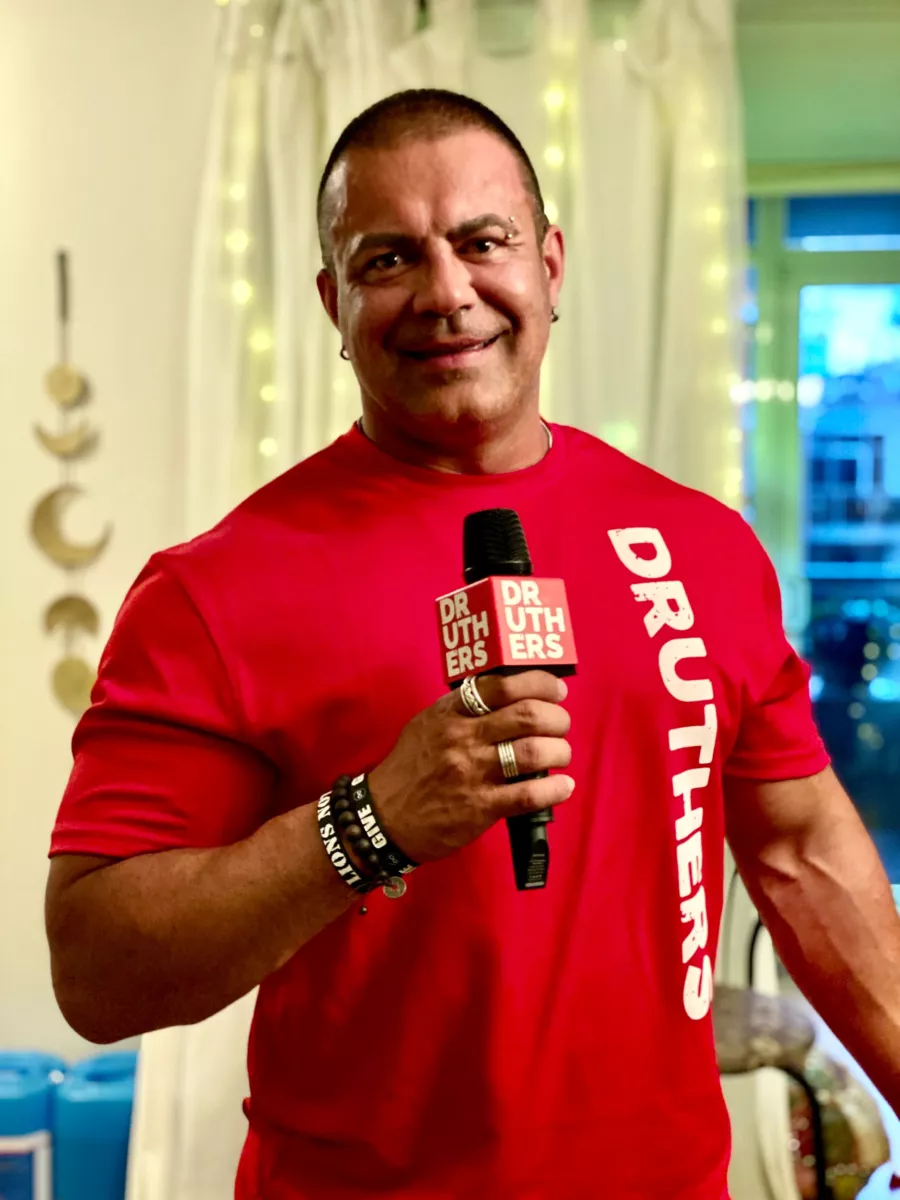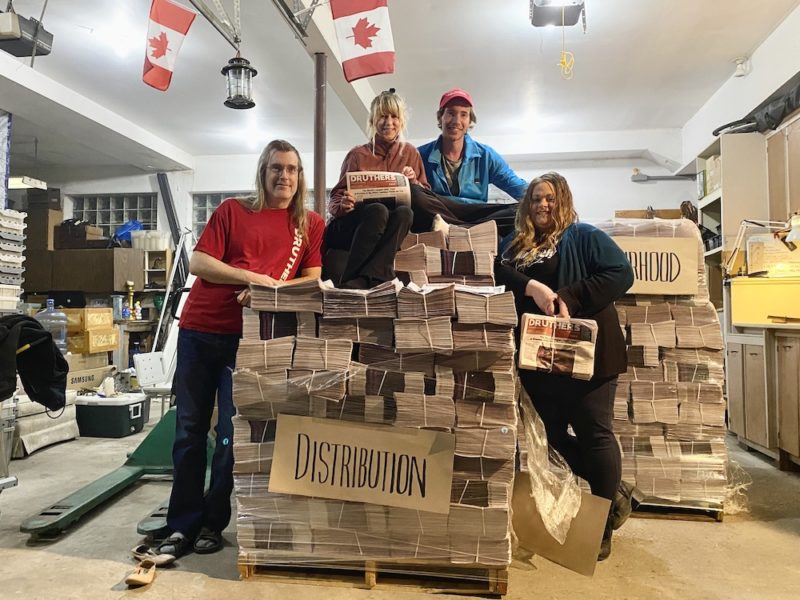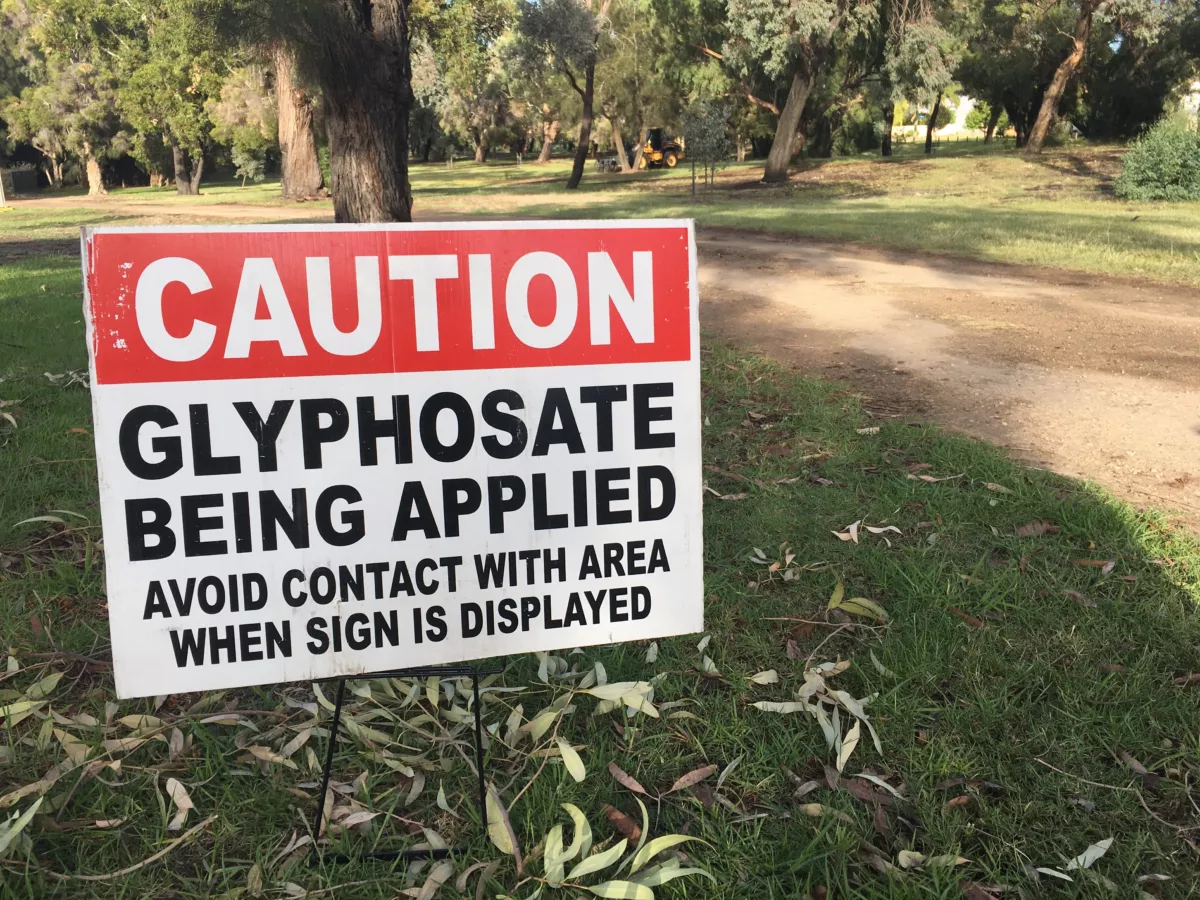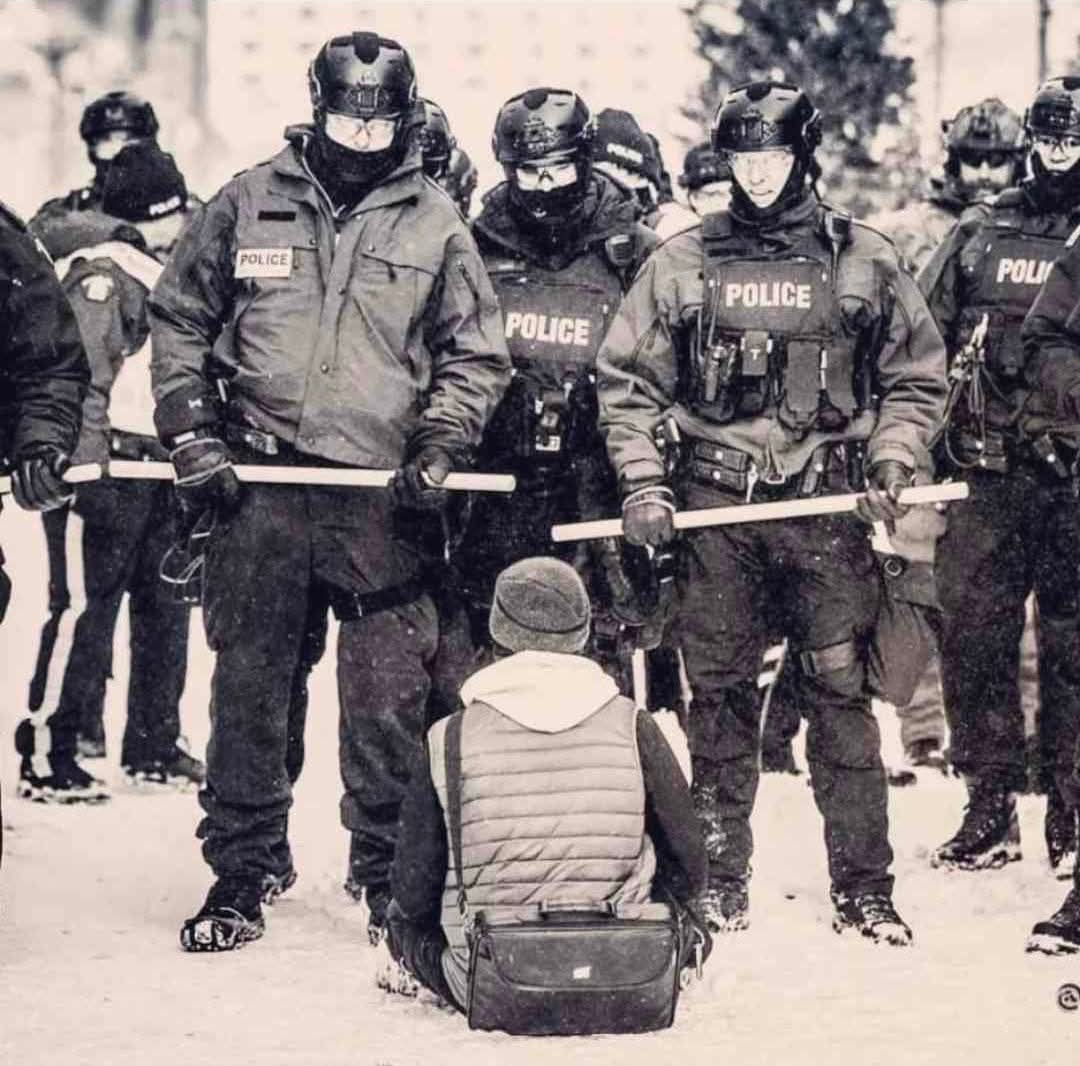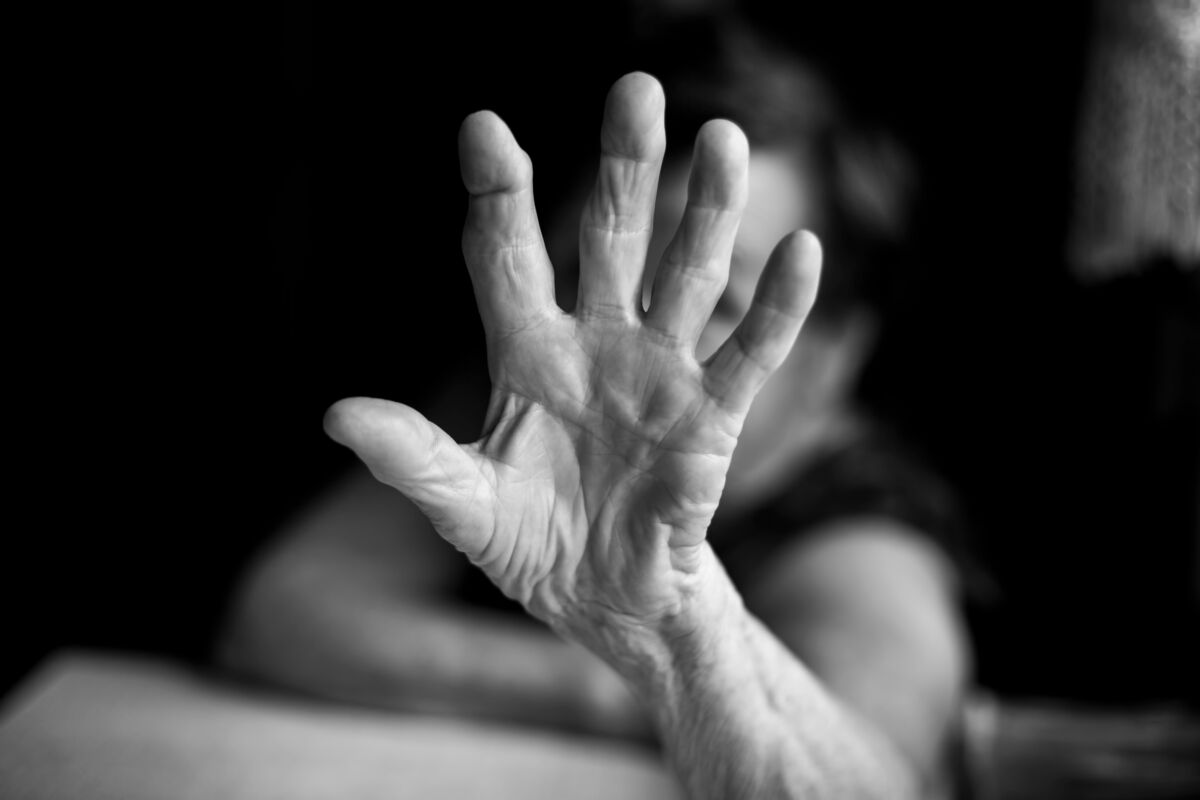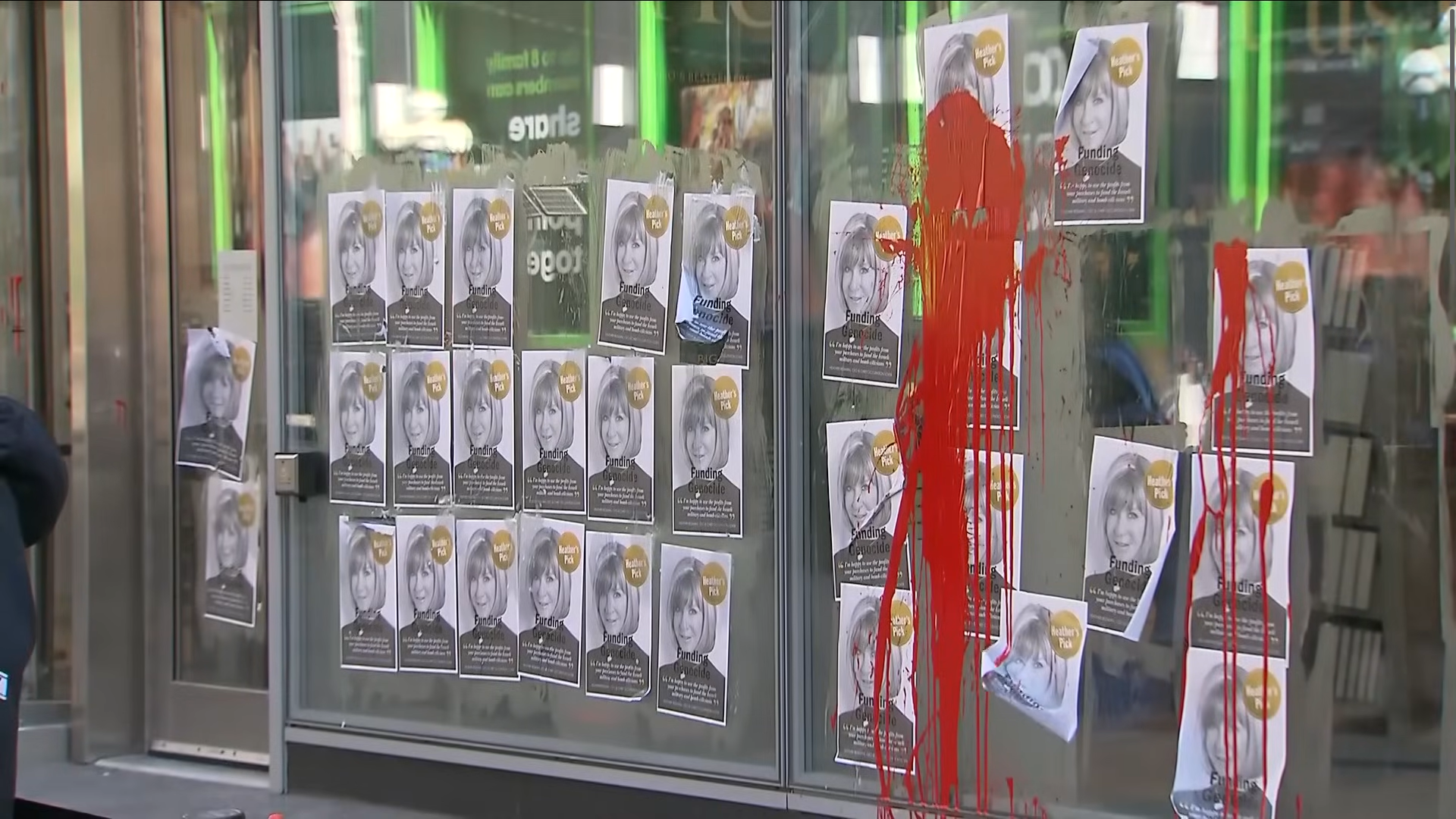Inside Coventry Camp at Ottawa Protest
By Brendan Lovering
The experience I had in this camp was unlike any other in my life. Hugging was commonplace among strangers. People would hand the keys to their vehicles over for strangers to drive. It was not uncommon for strangers to hand over $1000 of their own money in donations. Even though I was there for just under a week, there are many people whom I would consider to be brothers and sisters. The closest thing I can relate this to is soldiers who refer to others in their unit as “brothers.” While soldiers fight, ours was one of peaceful protest. Those in and outside leadership alike constantly reminded each other that we must always be peaceful and gentle. It even seemed like an unofficial slogan at times and was sometimes used as a salutation.
I was volunteering for security, which we also called “meet and greet,” leading up to and during the time of police action in Ottawa at Coventry camp. The camp served as a logistics centre for food and fuel to be delivered to the Truckers during the protests. When funds were cut off from the top we played a vital role in receiving donations that could be distributed to the truckers.
After the roadblocks and checkpoints went up, the camp was teeming with people who were unable to find their own way down to Parliament Hill, many of whom identified as “weekend warriors.” I worked for roughly 18 hours on the Friday when the police began brutalizing protestors in line. Meeting and greeting hundreds, if not thousands, of people from all walks of life.
Don’t lose touch with uncensored news! Join our mailing list today.
Many of the people in the camp had exhausted their cellular data, and most others were conserving it. So much of the news we had during that time was based on the first-hand accounts of what people told us as they came into camp. Much of it was horrifying. People told stories of police “kettling” crowds into police lines to be beaten to the ground, and of being pepper-sprayed and tear-gassed.
Everyone there was keenly aware and devoted to the cause of keeping the freedoms we have enjoyed in the past so that future generations might also thrive being free. The camp played a supportive role in carrying this out by providing the necessities of life to the ongoing protests by Parliament Hill. I would argue, however, that the more agitated the government response to our cries became the more important another unseen battle became. Something almost impossible to capture with a camera. The battle I speak of is one waged within ourselves. We needed to come to a place where while fighting for the rights of everyone, we needed to include those who were threatening and brutalizing us into our hearts. Our success hinged on our ability to disavow the evil that resides within us, an evil that is provoked when injustices are perpetrated against us. We needed to call forth something greater — the awareness of which was palpable in our camp. Prayer was commonplace, not because it was a religious practice, but because it seemed like the only right thing to do. Asking someone if they were religious or what kind of denomination they belonged to would have been out of place to the point of disrespect. I didn’t hear the question posed once; a sign we were all on the same page.
When people came from downtown I asked if they had seen any violence from the protestors. I asked dozens of times. Everyone reported continued peaceful protests even while watching friends and loved ones beaten with clubs to the ground, or any number of other injustices. Everyone was aware that just one act of violence could undo everything we stood for. Everyone who was beaten and imprisoned trusted thousands of strangers to remain peaceful.
Allow me to tell you one of several similar stores I heard told to me. This story was confirmed verbally by about six people who were watching it unfold. Standing in front of a line of officers was a protester who asked one officer in riot gear in front of him something to the effect of, “does this cause not affect you as well? Did they force you to take the jab? Did they threaten your livelihood and the security of those who are dependent on you? It is not too late. Take my hand and join us.” The officer, with eyes full of tears and sobbing, reached his hand forward and took the protester’s hand. He started to move into the protestors when his fellow officers, seeing what was happening, tackled the officer to the ground and arrested him.
I would like to bring to your attention one more observation to show how grassroots the Ottawa protests really were. There are perhaps many examples I could illustrate but think this example also helps to show how the people fighting for our freedoms in Coventry also exercised their own self freedom and were encouraged to do so.
Partly because of the threat of police infiltration, it was a common sentiment in the camp that all decisions made should feel right to the individual. Decisions handed down from “leaders” were only as good as they felt right with the heart of each volunteer. Although there was admiration for leaders, it was commonly said to “never blindly do what they say.” This sentiment extended to the live-streamers and other celebrity figures of the protests. All people in leadership were there because they had stepped up to the plate to fill a role that needed to be filled and was able to do a good job filling it. As such it was difficult to know who was in charge of what because there were no official positions or appointments. They were just people you trusted to get the job done. Even within Coventry camp there were several separate groups, each with their own leadership and ideas. I got the sense that after funding from the top had been shut off, the grassroots organization for the movement was only strengthened. Although not having access to the funds raised centrally was a financial setback, I felt it strengthened the soul of the movement. We needed every ounce of that strength in the face of what we encountered.


